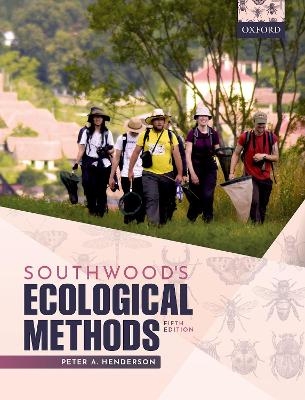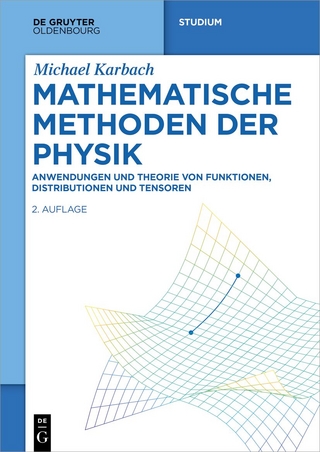
Southwood's Ecological Methods
Oxford University Press (Verlag)
978-0-19-886227-7 (ISBN)
Ecological Methods by the late T.R. E. Southwood and revised over the years by P. A. Henderson has developed into a classic reference work for the field biologist. It provides a handbook of ecological methods and analytical techniques pertinent to the study of animals, with an emphasis on non-microscopic animals in both terrestrial and aquatic environments. It remains unique in the breadth of the methods presented and in the depth of the literature cited, stretching right back to the earliest days of ecological research.
The universal availability of R as an open source package has radically changed the way ecologists analyse their data. In response, Southwood's classic text has been thoroughly revised to be more relevant and useful to a new generation of ecologists, making the vast resource of R packages more readily available to the wider ecological community. By focusing on the use of R for data analysis, supported by worked examples, the book is now more accessible than previous editions to students requiring support and ideas for their projects.
Southwood's Ecological Methods provides a crucial resource for both graduate students and research scientists in applied ecology, wildlife ecology, fisheries, agriculture, conservation biology, and habitat ecology. It will also be useful to the many professional ecologists, wildlife biologists, conservation biologists and practitioners requiring an authoritative overview of ecological methodology.
Peter A. Henderson is Director of Pisces Conservation Ltd, an independent ecological consultancy and software house based in Southampton, UK. In addition, he lectures and holds the position of Senior Research Associate in the Department of Zoology, University of Oxford, UK. He is an ecological consultant and research scientist with 40 years' experience combining theoretical, applied, and field research, with extensive experience of the management of major ecological assessment projects including preparation and presentation of material for public enquires and liaising with conservation bodies and engineers. Projects he has undertaken include conservation planning for large tropical nature reserves, ecological effects studies of nuclear power station intakes, conservation studies of rare freshwater life and effects of climate change and drought. Sir Richard Southwood (1931-2005) was a British biologist, Professor of Zoology and Vice-Chancellor of the University of Oxford, UK. The title of the 5th edition honours his memory as the original author of this landmark textbook, the original edition of which was first published in 1965.
Preface to Fifth Edition, 2020
Preface to Fourth Edition, 2015
Preface to Third Edition, 1998
1: Introduction to the Study of Animals
2: The Sampling Programme and the Measurement and Description of Dispersion
3: Absolute Population Estimates Using Capture-Recapture Experiments
4: Absolute Population Estimates by Sampling a Unit of Habitat -Air, Plants, Plant Products and Vertebrate Hosts
5: Absolute Population Estimates by Sampling a Unit of Aquatic Habitat
6: Absolute Population Estimates by Sampling a Unit of Soil or Litter Habitat-Extraction Techniques
7: Relative Methods of Population Measurement and the Derivation of Absolute Estimates
8: Estimates of Species Richness and Population Size Based on Signs, Products and Effects
9: Wildlife Population Estimates by Census and Distance Measuring Techniques
10: Observational and Experimental Methods to Estimate Natality, Mortality, Movement and Dispersal
11: The Construction, Description and Analysis of Age-Specific Life-Tables
12: Age-Grouping, Time-Specific Life-Tables and Predictive Population
13: Species Richness, Diversity and Packing
14: The Estimation of Productivity and the Construction of Energy Budgets
15: Techniques for the Study of Long-Term Dynamics-Analysing Time Series
16: Studies at Large Spatial Scales, Citizen Science and the Classification of Habitats
| Erscheinungsdatum | 02.06.2021 |
|---|---|
| Zusatzinfo | 176 colour line figures and illustrations |
| Verlagsort | Oxford |
| Sprache | englisch |
| Maße | 195 x 253 mm |
| Gewicht | 1256 g |
| Themenwelt | Mathematik / Informatik ► Mathematik ► Angewandte Mathematik |
| Naturwissenschaften ► Biologie ► Ökologie / Naturschutz | |
| Naturwissenschaften ► Biologie ► Zoologie | |
| ISBN-10 | 0-19-886227-X / 019886227X |
| ISBN-13 | 978-0-19-886227-7 / 9780198862277 |
| Zustand | Neuware |
| Haben Sie eine Frage zum Produkt? |
aus dem Bereich


